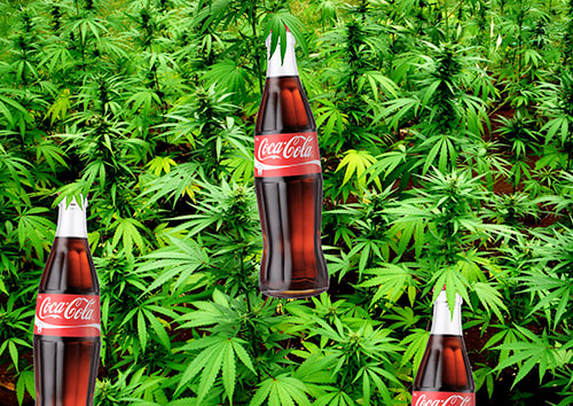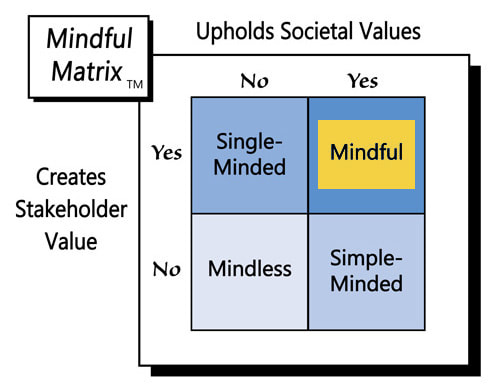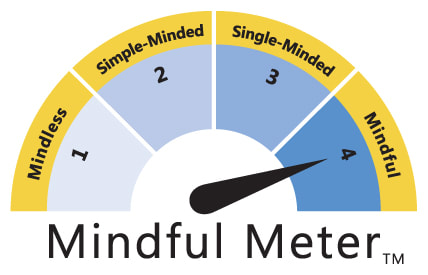A few weeks ago, news sources including Reuters and BNN Bloomberg reported that the Coca-Cola Company was in talks to develop beverages infused with cannabis. The alleged partner is Vancouver-based Aurora Cannabis Inc., Canada’s third biggest producer of weed, which has a market cap of $9.365 billion.
How can Coca-Cola, one of the world’s most respected companies, the parent of several family-friendly beverage brands, and the creator of those loveable polar bears, enter the market for a drug that is illegal in the vast majority of U.S. states and most countries in the world? Perhaps desperate times call for desperate measures.
Coca-Cola is feeling the heat from increased beverage industry competition coupled with fizzling consumer demand for sugary sodas, which represent several of the company’s hallmark brands. Such pressures have led the firm to diversify into healthier drinks over the last decade or two, and most recently the company announced the purchase of UK-based Costa Coffee for $5.1 billion.
True, there is such a thing as a caffeine high, but there’s a big difference between a cup of joe and a bag of weed—so I’m told; I’m not a coffee-drinker and I have no experience with marijuana, just to be clear. However, that lack of firsthand knowledge didn’t stop me from writing a Mindful Matters blog post a couple of years ago that poo-pooed a gym combining workouts with weed. I’ve since done more reading about cannabis, as well as Coca-Cola’s potential use of it, and what I’ve learned has been surprising.
Most of us have heard of the psychoactive, or mind-altering, effects that marijuana can have on users, which include a relaxed sense of well-being and an altered sense of time, as well as anxiety, fear, and hallucinations. Those potentially dangerous consequences stem from a specific component of the drug called tetrahydrocannabinol, or THC.
However, cannabis has another component, a medicinal one called cannabidiol, or CBD, that is not intoxicating and doesn’t make people high. Also, the National Institute on Drug Abuse says that CBD, which can be safely extracted from cannabis, does not appear to be addictive. Instead, there is evidence that CBD lessens muscle inflammation, decreases pain, and reduces cramping.
What’s the point of this science-speak? The difference between THC and CBD matters to Coca-Cola because its potential new product uses the latter. The company is not contemplating some kind of liquid reefer or ecstasy juice. If the firm does partner to produce a cannabis-infused beverage, it will likely be in the ‘recovery drink’ category, offering the muscle-mending benefits mentioned above. Think Powerade with a medicinal punch.
Still, isn’t it crazy for a renowned company like Coca-Cola to risk its reputation by connecting itself to cannabis? It’s not foolish for a few reasons. First, there is increasing recognition and acceptance of the medicinal form of the drug. U.S. states and other countries continue to amend their laws to make medical marijuana legal. Also, there are people now taking prescription drugs to manage the muscle symptoms mentioned above, with little effect. The CBD form of cannabis might help them find relief without making them high or risking addiction.
Second, if Coca-Cola moves forward with a cannabis-infused drink, it can safeguard the company’s reputation by individually branding the product. The firm has taken this approach with most of its other products like Minute Maid, Vitaminwater, Fairlife milk, and Sprite. These products have branding that stands on its own and basically just links to the parent company through the fine print on the back of the packages.
Third, Coca-Cola’s consideration of cannabis deserves credence because it’s not the only prominent company exploring such possibilities. At least two other big beverage firms, Molson Coors and Constellation Brands (brewer of Corona beer), are taking serious steps toward cannabis-infused drinks. Furthermore, the market for CBD-based products is expected to reach $2.1 billion by 2020.
When I first heard of Coca-Cola’s meeting with Aurora, my thought was the pairing would produce either Single-Minded or Mindless Marketing. What a difference some focused reading and a few letters (CBD vs. THC) can make. While writing this blog post, my perspective has changed, and it still could evolve. Right now, though, I believe the potential partnership could yield a respectable wellness product that might be “Mindful Marketing.”
Learn more about the Mindful Matrix and Mindful Meter.
Check out Mindful Marketing Ads and Vote your Mind!




 RSS Feed
RSS Feed